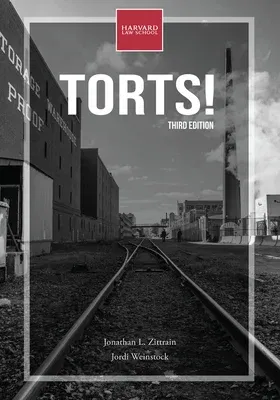A law school casebook that maps the progression of the law of torts
through the language and example of public judicial decisions in a range
of cases.
A tort is a wrong that a court is prepared to recognize, usually in the
form of ordering the transfer of money ("damages") from the wrongdoer to
the wronged. The tort system offers recourse for people aggrieved and
harmed by the actions of others. By filing a lawsuit, private citizens
can demand the attention of alleged wrongdoers to account for what
they've done--and of a judge and jury to weigh the claims and set terms
of compensation. This book, which can be used as a primary text for a
first-year law school torts course, maps the progression of the law of
torts through the language and example of public judicial decisions in a
range of cases. Taken together, these cases show differing approaches to
the problems of defining legal harm and applying those definitions to a
messy world.
The cases range from alleged assault and battery by "The Schoolboy
Kicker" (1891) to the liability of General Motors for "The Crumpling Toe
Plate" (1993). Each case is an artifact of its time; students can
compare the judges' societal perceptions and moral compasses to those of
the current era.
This book is part of the Open Casebook series from Harvard Law School
Library and MIT Press.

